Our Featured Writer for the month of January is Berry Feistypen. Her story, Small Pikin, Part 1, got the highest views in the month of December. To increase the number of views for your own stories, share the links with friends, and on Facebook and Twitter. To read more of the Berry’s stories click HERE. Enjoy her interview below.
Who is Berry FeistyPen?
I am Akan Etuk Nweke, a twenty six year old woman with plans to become a literary force to reckon with. I’m a mum, a pharmacist, a blogger, a prolific alto back-up singer and an entrepreneur.
When and why did you begin writing?
I haven’t always written. What I’ve always done is read. I’ve loved to read since I knew how to. I used to go hide in my room and read everything I came across; story books with frayed ends and pages 12-16 missing, newspaper clippings, magazines, my dad’s Christian literature, my mum’s colorful management brochures etc. My mum used to say she was afraid I would grow up and not know how to keep house, since I always groaned any time a visitor came and my reading had to be interrupted to “go and buy Coke”. I discovered from an early age that I loved words, and I easily had the widest vocabulary among my peers at the time. Words provided the escape from the dreary and monotony of those evenings when power was out.
Apart from a two year editorship for my Pharmacy Christian magazine in Unilag, I didn’t start serious writing though until October, 2010. At 26, I realized that I needed to express an artistic side of me and so opportunity came when I posted a birth day note on Facebook and I received glowing reviews which did a lot to provide much needed ego boost . And since then, I’ve not looked back. I blog at www.berryfeistypen.blogspot.com, www.myjuvenilemuse.blogspot.com, www.ynaija.com/pilgrims-progress/. I’ve also recently written an article for Elan- the style insert of Next newspaper. http://bit.ly/eG13nm and of course Naija Stories. By the way, Mark Zuckerberg will get a share of my first book advance. Oh well, oh well, just kidding, after the tithe and ‘charity’, I’ll doubt there’ll be much left!
What inspires you to write?
I am inspired by everything around me. I believe that all life is a muse, and this reflects in my writing. A commentator on Facebook recently said he wonders what else I’ll write. I’ve written about relationships, politics, religion, raising a son, my hair, death, rats *chuckles* I have as it is 26 years worth of stories and I haven’t even started.
Do you have a specific writing style?
I write the kind of things I love to read. If a writer can present serious issues in a light hearted manner, then they’ve got me. Humor, satire, irony are predominant in my writing. I experiment with point of view, characters, and all. I am constantly looking for unique ways to present issues in my non fiction, and my fictional stories pack a humorous punch that picks you up lightly, takes you on a giddy spin and then lands you on the ground with a loud thud. And there’s always that twist. I’ve also recently been considering writing copy for ad campaigns because I do know how to write an emotive one liner.
Do you have a major theme that runs through most of your work?
Well I haven’t written enough to draw a definite line through my writing, but I think humor will never be far. I’ve even written about death in an almost humorous manner. That’s how crazy I get. I also think I will in the future tell stories about life in Nigeria and the hilarity that is woven in our religion, our politics, our entertainment, our social relations, and it won’t be all derogatory. The Westeners will soon be shocked at a novel about Africans who eat 3 square meals and work hard to take care of their aged parents. I’ll open up Nsit Ibom; my local government, Ajah; where I live and modern day Yaba where I went to school. I’ll do to these places what American novelists have done to Las Vegas, Beverly Hills, and Wall Street. I’ll tell the other stories. We have whined too much. Enough already!
What books have influenced your life most?
I’m inspired by the Bible. The Bible is a book of books written by great men who were moved by the Holy Spirit. The Holy Spirit is one interesting muse then if we do have such masterful use of language; (Hebrews), vivid imagery by way of metaphor, simile, personifications; (the Psalms), great lessons in denouement, story structure and overall emotional arcs; (the Gospels) and even erotica; (the Songs of Solomon). I also loved to read Chinua Achebe’s works notably Arrow of God and Things Fall Apart. I need to meet his muse! Somerset Maugham, the early century prolific short story writer (Rain and other stories) has a keen eye for detail and prose so muscular, you want to be taken in those arms.
If you had to choose, which writer would you consider a mentor?
Pinning down one particular mentor is hard but I would say Chinua Achebe. Things Fall Apart for instance was written when he was 28 and I am awed at the audacity of his muse and its ability to lead Achebe on to places no pitiable Western boot-licking would have been able to do.
What books are you reading now?
Facebook! Well, that’s a joke, but I do spend considerable time looking at faces and the stories they tell (There are some hot notes, by the way) Ok seriously, I’m currently reading J.D Salinger’s The Catcher in the Rye, Maugham Somerset’s Of Human Bondage and Barack Obama’s Audacity of Hope. My lap top has over 50 books waiting for my attention. I also read short stories on the internet on a daily basis.
Are there any new authors that have grasped your interest?
Adaobi Tricia Nwaubani is one to look out for. I love I do not come to you by chance. If you have read the book, you know that it is just the angle I would look at something as serious as internet scamming. I also like Eghosa Imasuen. To Saint Patrick, his alternate history book showed a piercing intelligence.
Is there anything you find particularly challenging in your writing?
There are three things I find challenging. The first is finding time to actually write. I juggle a day job as a pharmacist, raising my son, preparing applications for a Masters Program starting in February, reading and of course facebooking, tweeting and protracted ‘ internet ‘researching’. I have now decided to write mostly in the middle of the night when my internet would be inactive, my little boy asleep and the Pharmacy closed.
The second is finding things to write about that readers would care to read. A lot of stuff goes through my mind every day, but I’m always wondering if anyone would bother. Why would they want to read about my hair? But thank God for little mercies; they did.
The third is power supply. I can no longer write. I mean literally. My fingers wobble when I hold a pen. I do all my writing on a Compaq Mini with a battery life of 45 mins. When the power is out and for some reason I can’t charge the lap top, I’m visibly agitated. In those times, I manage to scribble on scrap paper I find in my oversize tote.
Who is your favorite author and what is it that really strikes you about their work?
I would need to read so much more to settle on a favorite, so I’ll say within the limited scope of twenty six years of reading, I like Enid (I always thought it was Guid) Blyton because she wove magic into a little girl’s mind and transported her to places such as a tree and a wishing chair and African legend Chinua Achebe for his fluid prose and the rich blend of local dialect and English language.
What do you think of the Nigerian publishing industry?
Publishers are not printers. Publishing includes an entire network of agents, editors, proof readers, publicists, distributors, printers, book reviewers etc. For Nigeria’s publishing industry to be vibrant, people need to realize that editing is a career and literary agency too. Farafina and Cassava Republic are doing well, but we need so many more; you can’t have only two thriving publishing houses for a country of 140 million when at least a tenth of my Facebook friend’s have desires to publish in the future. Another area where Nigerian publishing has failed is in electronic publishing. There is such a thing as e books (see Kindle) and web sites where people pay to view so that the thousands of young writers all over the country would get paid something. The government also has a role to play in providing grants and competition sponsorships. If we have our own competitions, people would be disinclined to pander to Western sensibilities. We would simply tell our own stories to ourselves and any one that cares to listen/read.
What comments do you have about the reading culture in the country?
The question is obviously asking, “do Nigerians read paper books?” The answer is No! Most of them don’t. But a lot of people read Facebook, Twitter, blogs, online magazines, BB group chats, etc. Nigeria has been through a lot and so it is hardly surprising that book shops are empty, but the country can be helped if the publishing industry keeps up with the times and embraces electronic publishing. Naija Stories is doing well and has made innovative strides especially with the introduction of the Podcast to which a story of mine, Cold Feet was converted.
Do you have anything specific that you want to say to your readers?
I am grateful for all those one liners ‘Nice one’ and ‘Coooooool!!!!’ and even the long passages extolling my writing. Ironically, rather than puff me up or make me complacent, they have humbled me and in the dead of the night, I sit up and think, “they think you can do this, so you better do it. And I will do it. Please keep reading Berry FeistyPen; the words mean little if they haven’t been read.
Related posts:
- My Best Nigerian Book Contest
- Second Round - My Best Nigerian Book Contest
- Profile of Second Round Judges
Further reading
- Casino Non AAMS
- Siti Scommesse Non Aams
- Non Gamstop Casino
- Casino Not On Gamstop
- Online Casinos UK
- Non Gamstop Casino UK
- Slots Not On Gamstop
- Non Gamstop Casino Sites UK
- Best Non Gamstop Casinos
- Online Casino Zonder Cruks
- Not On Gamstop Casinos
- Casinos Not On Gamstop
- Casinos Not On Gamstop
- Non Gamstop Casino UK
- Casino Online Non Aams
- Slot Sites UK
- Slot Websites UK
- Meilleur Casino En Ligne
- Casinos Not On Gamstop
- UK Casino Sites Not On Gamstop
- Casino Not On Gamstop

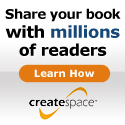
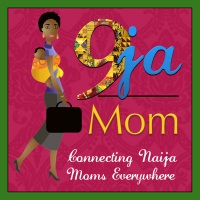
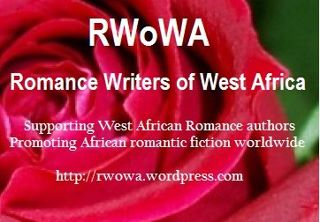





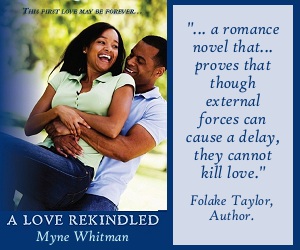
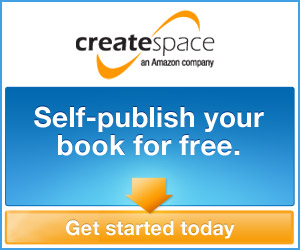
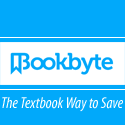



So this is Feisty Berry, lol!
She makes me think of one song like that…